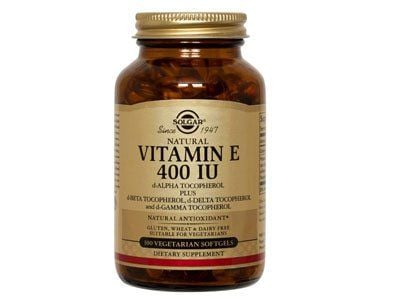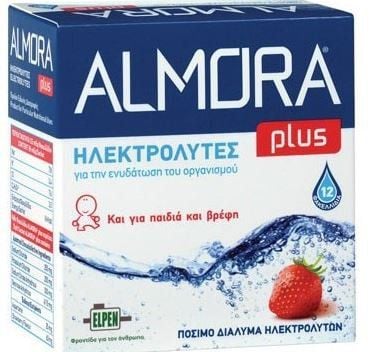This is an automatically translated article.
Vitamin E is a normal component of breast milk. Maternal obesity, smoking, and preterm birth are associated with lower levels of vitamin E in breast milk. Therefore, it is necessary for nursing women to take vitamin E. In addition to diet, these mothers may need to supplement their vitamin E intake to achieve the daily recommended level of 19mg, both to take care of themselves and to ensure the quality of breast milk.
1. Can breastfeeding women take vitamin E?
After a baby is born, breast milk provides nutritional, immunological and mental health benefits to the infant, so mothers are encouraged to exclusively breastfeed their babies until they are fully breastfed. Six months old. The composition of vitamin E changes during lactation, in accordance with the needs of the infant. It is known that vitamin E content decreases gradually as lactation time increases, and colostrum has the highest content of this vitamin. Accordingly, breast milk is responsible for providing the infant's vitamin E needs during the early stages and during lactation. Thus, breastfeeding women taking vitamin E will have a role to play in protecting the infant from the development of signs and symptoms associated with birth defects, such as hemolytic anemia, bronchopulmonary dysplasia. , neurological dysfunction and neonatal mortality.

"Phụ nữ cho con bú uống được vitamin e không?" là thắc mắc của nhiều bà mẹ
2. The benefits of taking vitamin E while breastfeeding
Breastfeeding women taking vitamin E is necessary to protect the newborn and promote the healthy development of the baby.
2.1 Helps Prevent Anemia Vitamin E in breast milk is an important nutrient that can help prevent your baby from developing anemia after birth. Anemia is a condition in which the baby's red blood cells carry oxygen throughout the body. As reported by infant health studies, the development of anemia can cause extreme fatigue as well as stress on a baby's internal organs.
If the mother's body lacks vitamin E, it will be difficult for the baby to get the necessary amount to help prevent anemia. So, breastfeeding women taking vitamin E increases the levels enough for the baby to get what he or she needs.
2.2 Protects Eyes and Lungs Vitamin E is considered an antioxidant and may help protect eyes and lungs. Accordingly, infants given enough vitamin E can help protect them from damage related to the retina and lungs.
This is thanks to mechanisms that scavenge free radicals that cause tissue injury, which is to limit the amount of oxygen to the retina and lungs.
2.3 Promotes healthy muscle growth The use of vitamin E is to help protect your baby's muscles, cardiovascular and nervous systems. This function of vitamin E is due to the fact that vitamin E is necessary for proper metabolism, and if there is a deficiency, there will be weakness or degeneration of the developing muscles.
3. How to supplement for breastfeeding women to take vitamin e
Vitamin E is one of the examples of substances with antioxidant capacity. The recommended amount of vitamin E for breastfeeding women 14-50 years old is 19 mg, compared with 15 mg for pregnant women. Similar to Vitamin A, this increased need is to compensate for Vitamin E that is secreted into breast milk.
Because vitamin E is stored in the body, this vitamin can build up over time. If you eat an amount that exceeds the recommended dose, there is a risk of poisoning the body. Therefore, it is important that breastfeeding women taking vitamin E know the best ways to safely and effectively supplement vitamin E.

Phụ nữ cho con bú uống vitamin e nên tham khảo ý kiến bác sĩ
4. Food sources rich in vitamin E
Although vitamin E supplements or medications can be helpful for some health conditions, this approach does not provide the same benefits as antioxidants found in foods. And a nursing woman's diet includes nutrients that work with vitamin E for better absorption, such as fats, vitamin C, vitamin B3, selenium and glutathione.
4.1 Food sources of vitamin E Vegetable oils and oil products are ideal sources of vitamin E, such as wheat germ, sunflower, canola, olive, corn, and soybean oils. Margarine and spreads Meats Milk and eggs Nuts, such as peanuts, walnuts and almonds Seeds like sunflower seeds Fresh, dark green vegetables Fortified foods, including whole grains breakfast and fruit juice 4.2 Vitamin E supplements There are a number of ways to take vitamin E by mouth, these preparations usually come in the form of liquid-filled vitamin E capsules, liquid solutions, tablets and chews as well as topical oils.
Although vitamin E comes in many forms, alpha-tocopherol is the only biologically capable form used by the human body. The natural, and most potent, form, d-alpha-tocopherol, is found in foods and some supplements. A common synthetic form is dl-alpha-tocopherol, which is used in fortified foods and supplements.
Besides, pregnant women still need about 50% more dl-alpha-tocopherol synthesized from dietary supplements and fortified foods to get the same amount of nutrients found in the form natural d-alpha-tocopherol. For example, 100 IU of vitamin E naturally found in foods would give breastfeeding women taking vitamin E the same benefits as about 150 IU in synthetic form.
How to take vitamin E supplements should follow the directions on the label or in the prescribed amount suitable for nursing women. While there's no rule as to when is the best time to take a vitamin E supplement, choosing the same time each day will help you remember to take it better. However, if you forget to take your medicine, do not take extra vitamin E to make up for the missed dose.
Vitamin E supplements work best when taken with food, especially with meals that contain fat. Because vitamin E is fat-soluble, fat is needed for best absorption and minimal stomach irritation. Taking vitamin E on an empty stomach can cause nausea, heartburn, or other stomach upset.
In short, breastfeeding poses different nutritional needs than pregnancy. Therefore, if you wonder "can breastfeeding women take vitamin E", the answer is yes. In addition, the use of supplement forms for breastfeeding women taking vitamin E can be considered, but should strictly follow the recommended dosage to ensure optimal effectiveness.
Please dial HOTLINE for more information or register for an appointment HERE. Download MyVinmec app to make appointments faster and to manage your bookings easily.













